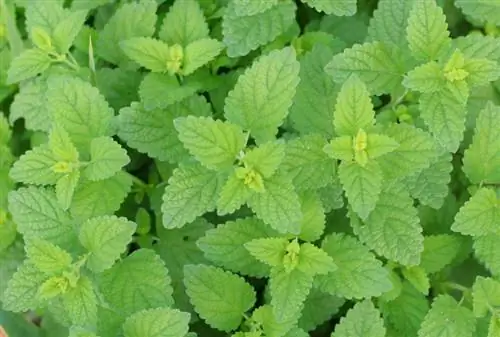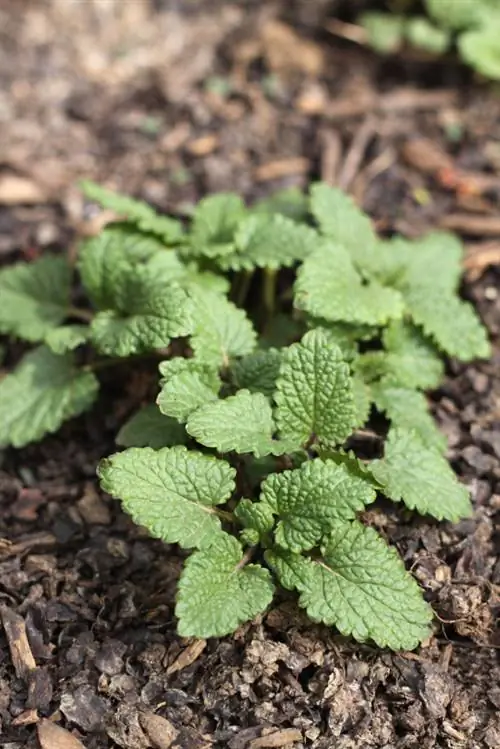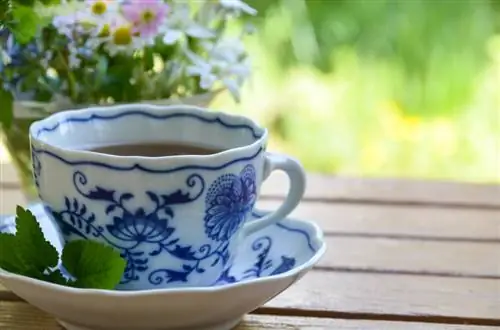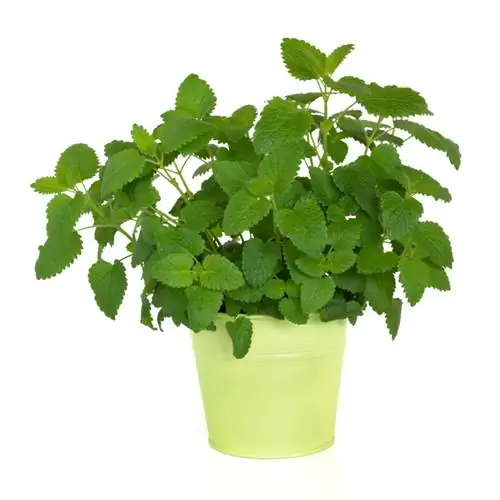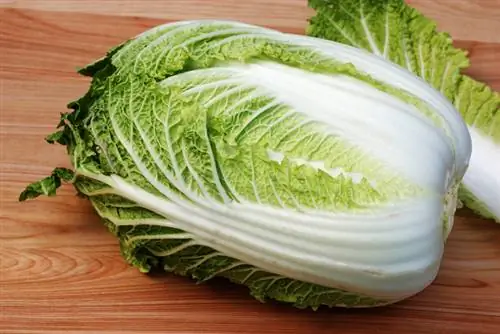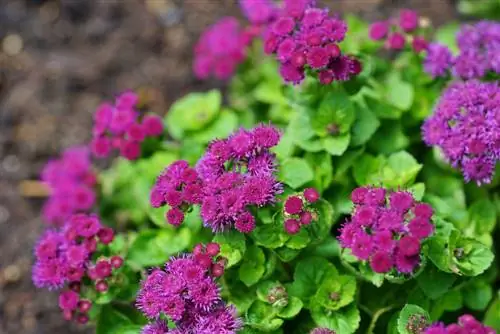- Author admin leonars@hobbygardeners.com.
- Public 2023-12-16 16:46.
- Last modified 2025-01-23 11:20.
Behind the sober botanical name Melissa officinalis, there is an herbal plant with numerous talents. Get to know the systematics and interesting characteristics of lemon balm in the profile.
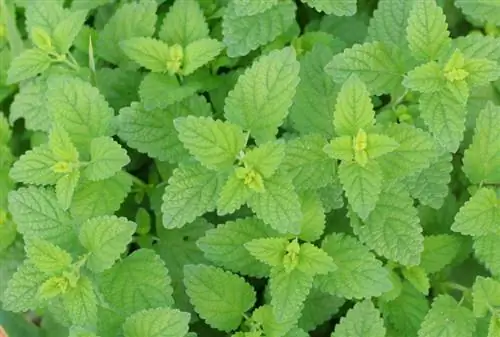
What are the characteristics of lemon balm?
Lemon balm (Melissa officinalis) is a hardy herb plant from the mint family that is native to the eastern Mediterranean. It grows up to 90 centimeters high, blooms from June to August and contains essential oils and vitamin C.
A profile with interesting details
The success of a hobby gardener is always based on a we alth of background knowledge about his plants. Lemon balm is no exception. Find out interesting details about the multi-faceted herbal plant in the following profile:
- Plant family of the mint family (Lamiaceae)
- Members of the genus Melissa (Melissa)
- Native to the Eastern Mediterranean
- Herbaceous, hardy plant
- Growth heights from 20 to 90 centimeters
- white flowers from June to August
- brown hermit fruits with seeds in autumn
- average life expectancy of 25 to 30 years
- Synonyms: lemon balm, garden balm, beeweed, lemon herb
- Use as a spice and medicinal plant, garden and house plant
In addition to Melissa officinalis, the genus is home to three other lemon balm species and various varieties. The wonderfully fragrant Melissa officinalis ssp. officinalis as a subspecies is also included, as is Melissa altissima, known as Crete lemon balm. Other species thrive predominantly in Asia and have not yet been able to establish themselves in our latitudes.
Valuable ingredients
The diverse possibilities for using lemon balm are based on the valuable ingredients. First and foremost are the essential oils, which provide the wonderful scent. In addition, lemon balm is rich in vitamin C. 100 grams of the leaves contain a whopping 250 milligrams of the vital vitamin. Also worth mentioning is the proportion of rosmarinic acid, whose antibacterial and antiviral effects are used in medicinal ointments.
Plant with the urge to conquer
An unqualified praise cannot be sung for lemon balm, because it has unpleasant characteristics. Due to its underground rhizomes, the herb plant constantly strives to spread further in the garden. To counteract this shortcoming, experienced hobby gardeners always plant the lemon balm with a root barrier (€13.00 on Amazon).
Tips & Tricks
The creative botanists at the State Institute for Natural Resources and Plant Cultivation have succeeded in creating a unique breeding that surpasses all previous lemon balm species and varieties in terms of aroma. We're talking about Melissa officinalis 'Binsuga', which grows to a height of 20 to 40 centimeters and thrives even in small gardens. Shortly before their white-pink flowers in July, you will harvest lemony leaves with an unsurpassed taste.

